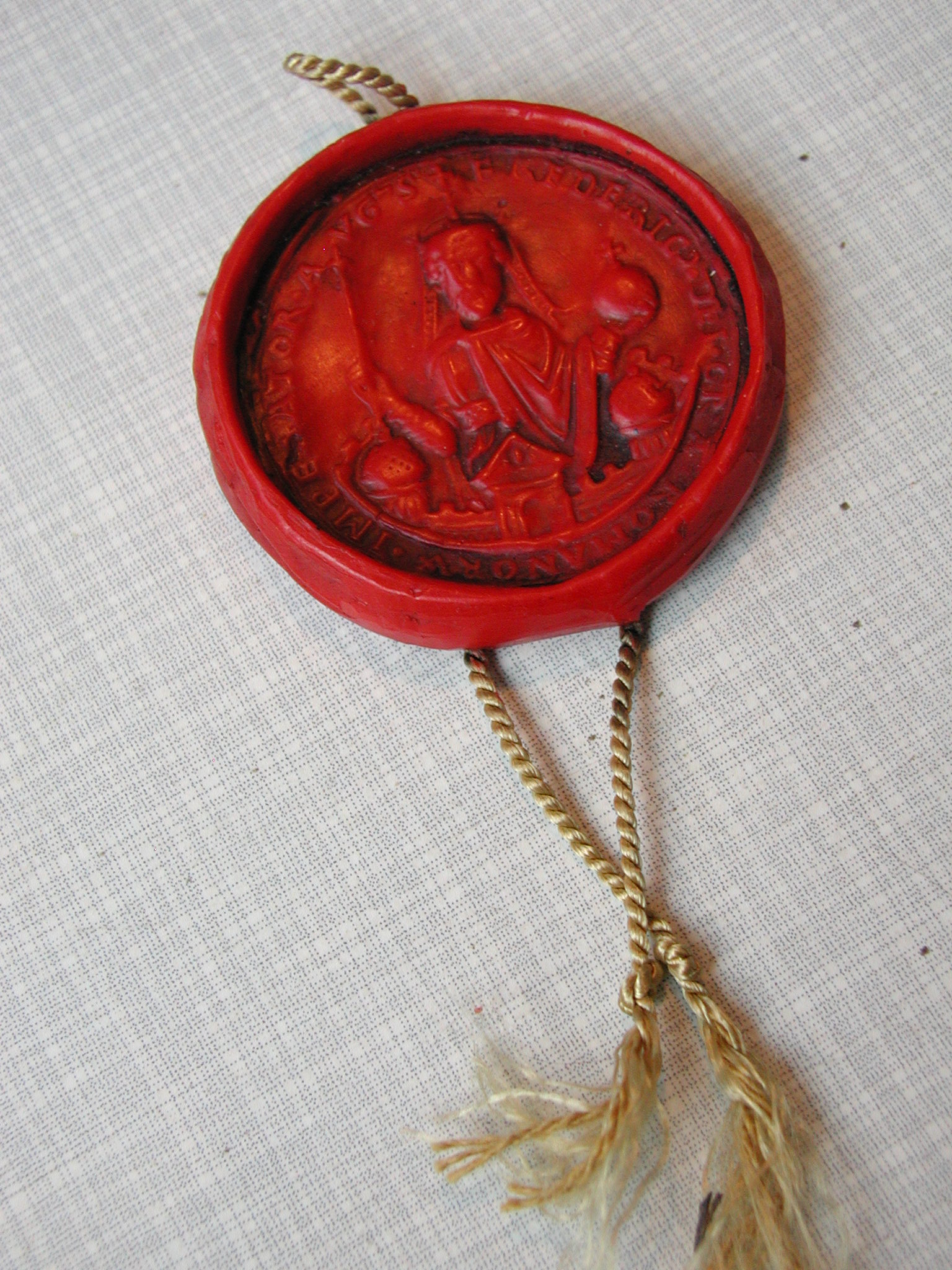Authentica habita on:
[Wikipedia]
[Google]
[Amazon]
 ''Authentica habita'',"Authentica Habita."
''Authentica habita'',"Authentica Habita."
'' Encyclopædia Britannica'', 2010. Encyclopædia Britannica Online. 20 Sep. 2010. or ''Privilegium Scholasticum'', was a document written in 1155 ca. by the Emperor Frederick I Barbarossa. In it, he set out for the first time some of the rules, rights and privileges of students and scholars. It is an important precursor to the formation of
'' Encyclopædia Britannica'', 2010. Encyclopædia Britannica Online. 20 Sep. 2010. or ''Privilegium Scholasticum'', was a document written in 1155 ca. by the Emperor Frederick I Barbarossa. In it, he set out for the first time some of the rules, rights and privileges of students and scholars. It is an important precursor to the formation of
medieval universities
A medieval university was a corporation organized during the Middle Ages for the purposes of higher education. The first Western European institutions generally considered to be universities were established in present-day Italy (including ...
in Europe.
Scholars from all over Europe had begun to travel to Bologna to study civil and canon law, and newly rediscovered works of Roman law, from the mid-11th century. As foreigners there, they found themselves without legal protection. A particular difficulty was the practice of the Right of Reprisal, where their property could be seized on foot of debts incurred by their countrymen.
The document grants several rights and protections to scholars including:
# Similar immunities and freedoms as those held by the clergy, provided they conformed to certain attributes, such as clerical dress;
# Freedom of movement and travel for the purposes of study;
# Immunity from the right of reprisal; and
# The right to be tried by their masters, or the Bishops court, rather than local civil courts.
The document was subsequently confirmed by Pope Alexander III
Pope Alexander III (c. 1100/1105 – 30 August 1181), born Roland ( it, Rolando), was head of the Catholic Church and ruler of the Papal States from 7 September 1159 until his death in 1181.
A native of Siena, Alexander became pope after a con ...
. The emperor incorporated the document into Justinian’s Codex, the extant body of Roman law, indicating its significance.
One medieval commentary to the document exists, written by Bartolomeo Bolognini in 1492. See also Pearl Kibre
Pearl Kibre (September 2, 1900 — July 15, 1985) was an American historian. She won a Guggenheim Fellowship in 1950 for her work on medieval science and universities.
Early life and education
Pearl Kibre was born in Philadelphia, Pennsylvania, ...
's "Scholarly privileges in the Middle Ages".
References
See also
* Benefit of clergy * University of Paris strike of 1229 * Clerici vagantes * Academic mobility {{DEFAULTSORT:Authentica Habita Medieval European education 1155 works